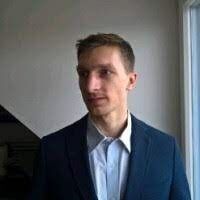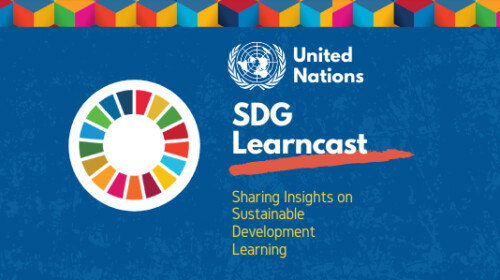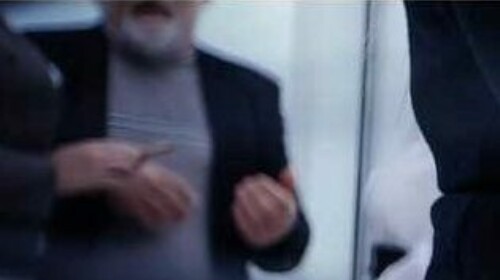In a pre-Covid survey, conducted by the International Organization of Employers (IOE) together with the International Labour Organization (ILO), of about 500 companies in all regions, it found that companies across the board felt the challenge of hiring and retaining skilled workers–it’s getting more difficult to find people with the rights and new graduates are not prepared for the current jobs. In fact, the skills employers needed four years ago are very much different to the skills they need now. In many countries, the education system is 10 years behind.
On the other hand, achieving sustainable development among big and small businesses globally can sometimes be seen as slow. Some companies jump into the sustainability train and introduce new ways of thinking and operating for a sustainable future. Others are still operating ‘business as usual’ in an old-fashioned way or operating in the margins that make them vulnerable, especially during crises.
In this episode, we hear valuable insights from Robert Marinkovich, adviser on sustainable development and climate policy portfolio, and Akustina Morni, senior adviser for the Asia employers group, at the International Organization of Employers on what can be done to address the skills gap and sustainability gap. IOE has more than 150 employer and business organization members, which have an impact on more than 50 million employers across the world.
Want to learn more about sustainable development and learning? Subscribe to SDG Learncast. Visit UN SDG:Learn website at www.unsdglearn.org to get the latest learning offers on the 2030 Agenda and SDGs.
The opinions expressed in the SDG Learncast podcasts are solely those of the authors. They do not reflect the opinions or views of UN SDG:Learn, its Joint Secretariat, and partners.
You can find SDG Learncast on your favorite podcast app.
[Transcript of the podcast]
Paulyn Duman: Welcome to the SDG Learncast with me Paulyn Duman.
Every episode I bring you insightful conversations around the subject of sustainable development and learning, helping us all to achieve a sustainable future.
With us today is Robert Marinkovic and Akustina Morni from the International Organization of Employers. Welcome to the SDG Learncast.
Robert Marinkovic: Hello
Akustina Morni: Thank you for having us.
Paulyn Duman: Can you introduce yourself and tell us about what you do at IOE.
Akustina Morni: My name is Tina Morni. I’m the senior advisor here at the international organization of employers IOE. I’m in charge of the Asia employers group and various topics such as the future of work, gender and diversity, skills development and youth and employment.
Robert Marinkovic: And I’m Robert, I’m an advisor with the IOE and I’m focusing on the sustainable development and climate policy portfolio.
Paulyn Duman: And can you tell us a bit more about IOE?
Akustina Morni: The IOE has been more than a hundred years old we have more than 150 employer and business organization members in more than 140 countries. Our mandate is to promote and defend business interests the United Nations, the International Labor Organization et cetera. And our vision really is to create a sustainable economic environment around the world, promoting free enterprise that is fair and beneficial to both business and society.
Paulyn Duman: You have more than 150 employer and business organization members and they are big organizations but also small. Robert, you were working in the area of sustainability, maybe you can give us a bit more background of the work that you do on sustainable development, and employers?
Robert Marinkovic: I’ve been working with the IOE for three years now. And over these past several years sustainability in general and particularly climate policy has become a Higher priority And I think globally but also for employers in the private sector. A lot of our work is really working with the rest of the international community so we focus on Joining some of these existing governance processes for climate in particular we have the UNFCCC and the COP meetings and then other similar processes. We really tried to be present in all of these governance processes and then work with the UN and with our members to bring on the one hand the priorities and the perspective of business to the debates but also to really follow the developments in the discussion. We then on the other hand inform our members and bring this agenda back to the national level.
Paulyn Duman: So, what does sustainable development mean for employers?
Robert Marinkovic: Sustainable development has as we all know is quite a broad term and if we look at the sustainable development goals there’s 17 of them with quite a host of different indicators in the things to be done. But obviously, the private sector, one of the things we focus on is the economy and creating economic value. At the IOE one of the main SDGs that’s important for employers and for business, in general, is the Goal 8 obviously because that’s the one that focuses on economic growth and then creating jobs and employment. The IOE is focused on employment and social policy. We try to really focus on our expertise. We’re not going to be looking at biodiversity targets as much as we’re going to be looking at economic targets because we’re not experts in bdiversity. And for us the goal is to really find a sustainable way of doing it so on the one hand as the Goal 8 on the other hand as the Goal 13 for the climate goals and reducing emissions but then also some other sustainable development elements which are important for business: such as diversity and education things like that because for us the idea is that if we have a healthy and the Sustainable economic system at the end of the day the other things will line up.
In order to have any chance of, reaching the sustainable development goals in general, we need to have economic growth and we need to ensure jobs for people because at the end of the day livelihoods in every country depend on jobs, and dependent employment and then it’s kind of innovation or technological breakthrough or behavioral changes will come When people are employed and when there’s enough productivity and value creation to do all of these other things.
Paulyn Duman: Could you tell us a bit more about the changes that you saw in the past years among your members? Do you think there was a fundamental shift in the mindset of looking at Sustainability not just as financial sustainability?
Robert Marinkovic: Within the past several years we can definitely see some bigger and bigger changes and in the private sector as well Definitely, You just need to look for it a little bit but we can see more and more companies are talking about the triple bottom line, What are the values of the company What’s the mission so there’s a lot more thinking and there’s a lot more development of ways of doing business that aren’t just focused on shareholder value that think a lot more about their purpose and about their place in the wider system and we’ve seen calls to this kind of thinking from a lot of high level institutions as well from the U S business round table from the UN global compact, from the world economic forum from some of the top level consultancies. I really think there is a shift in this kind of economic thing and there are companies like quite big multinational companies that are trying really to change things from within and that are developing more and more ambitious and detailed and sophisticated plans of changing business models using different technologies and also on the social level talking more about the inclusiveness and diversity and the value that their workers have and how they can make sure that their needs are met.
But on the other hand I think just like with climate change, there’s still a lot of progress to be made and we have to keep reminding ourselves that on the global level, the scale is huge there’s over 7 billion people out there right So there’s millions and millions of companies And we just have to understand that progress on the global level can sometimes seem a bit slow as well because there’s just so much diversity There’s just so much variety There’s just so many different companies And a lot of them are jumping on this train of sustainability and introducing new ways of thinking about the future but others and many of them are still doing things the old fashioned way or sometimes it’s also a question of capacity we saw with the COVID crisis A lot of people in a lot of companies are operating under margin And as soon as something goes wrong or as soon as there’s a some sort of crisis it’s a lot of companies and a lot of people aren’t ready for that So I think we’re also learning a lot from the past year or two about that.
Paulyn Duman: You’re working in the area of learning for your members for the employers and for the national association of employers. There are a lot of your members who are still old fashioned. How do you organize learning so that you can support your members in this regard?
Akustina Morni: Excellent question Paulyn And thank you very much. But before I answer your question, I just want to highlight the challenges and the difficulties of employers looking for the right skills. We did a survey with the ILO the international labor organization two years ago before COVID And even at that point we did a survey of about 500 companies in all regions and the challenge of hiring and retaining skilled workers it’s felt across all boards, Sectors and pay grades. It’s getting difficult to find people the right skills. And Bolivia for instance it’s 60% of employers money really difficult to find the people with the right skills, in Haiti’s 53%, China is 47%, in South Africa It’s 51% In Malaysia it’s as highest 63% so they’re saying that new graduates are not actually prepared for the current And that they’re finding it even the skills that they need four years ago is very much different to the skills that we need now So for us there is that challenge of making sure that the businesses have the right skilled workers because then it means that they’re more competitive and they’re more productive and they’re more sustainable And with the pandemic though they have more of a resilience against this And it’s really difficult because the education system does not reformed or it does not meet the needs of industry there A lot of the times in many countries the education system is 10 years behind what industry needs So it needs to keep up and employer organizations are there because they are closest to the labor market and they know very much what is the needed skills that we need And then in the short and immediate future So you imagine There are more than 50,000 professional skills around the world.
If you have three children two of them who are in primary school will actually be in a job where it doesn’t exist yet so imagine 60% of jobs that have not been created So how can you predict what kind of jobs will be out there So how can you make sure that the education curriculum is up to date. It’s really difficult. So, the answer to that really is to go into the basics So we talked about This notion of hard skills and soft skills hard skills it started in 1970s in the US army where they say hard skills is the ability for you to read a map and the soft skills It’s the decisions that you make after reading the map So this difference between the hard skills and soft skills and the soft skills are very much. Difficult for one to teach in it and entertain it we refer to them as human social skills and these are the kinds of skills that have evolved over the years If we look at for instance an interesting ad that we saw in 1972 a vacancy, let me read it out It says in the workplace soft skills were centered around being a good dutiful employee. So, one to deliver excellent customer service. Two, to adapt to your workplace three to please your manager whatever that means. And four is to learn and know the skills of your job Whereas when you look at the data that comes out of the world economic forum, they’ve indicated that the skills that we need in 2025 is very much different to that ad that I mentioned in 1972. So the top 10 skills that are needed in 2025 I will read it now in order. One is analytical thinking and innovation. The second is active learning and learning strategies. Three is complex problem-solving. Fourth is critical thinking analysis. Fifth creativity. Six leadership and social influence. Seven technology use monitoring control and I can go on and on Basically these are the skills that you need in 2025. It’s very much more complex and it’s more on the cognitive side rather than the focus on the hard skills.
So just to answer your question Paulyn so we want to make sure that the skills of today would be more critical through to really focus on the soft skills that we need And there is a need there to really update the education system We need to make sure that adopting soft skills or what we call human social skills are very much top of the education agenda at the national level, there needs to be a political will there to make sure that there is no mismatch there’s no skills gap there are no skills mismatches because we seeing that because of the pandemic this is widening further and further.
Paulyn Duman: That’s interesting especially that you compare the skills and the job Advertisement in 1972 and what we need for 2025 which is not so far from now. How do you address those gaps and needs concretely in the work that you do?
Akustina Morni: As the IOE is also the secretary of the employer’s group at the international labor organization. The ILO is the house that creates international labor standards in all areas And Us as one of the three tripartite constituents there’s being workers and the others being governments, we all work towards a common goal especially with regards to this notion on the future of work. There is a need to prioritize at the national level to strengthen the capacities of all people to make sure that they benefit from the opportunities of the changing world of work and one of them includes this notion of lifelong learning. So effective lifelong learning and quality education for all and this also, by the way, has been reinforced with the resolution to forge ahead in the context of the pandemic to make sure that the center and recreation is implemented to a focus and a slurred way and also highlights upskilling reskilling skills development education in the resolution. This concept of lifelong learning It’s not new but it’s getting more and more emphasized, there are countries now that are thinking of institutionalizing lifelong learning as a national policy. The two countries that had it before was Singapore and France. They have this as a policy at the national level but I see now there’s a trend in the Scandinavian countries that also believe that lifelong learning should be institutionalized at the national level.
So, what does this mean? It means that we need to continue learning So learning does not stop at school or at university. We have to continue learning from what they say from cradle to grave. It’s important for us to learn not just for professional reasons but also for personal reasons because it enhances social inclusion and enhances active citizenship. It’s for your own personal development. It’s for your own self-sustainability and it’s also linked to your employability right so there is this gap where it’s a joint responsibility. So, it’s not just the government’s job to make sure You get the education you need but it’s also your own job as an individual to continue learning. So, there are so many options out there where you can make a move for instance or online learning You can learn from this podcast, for instance to learn something and there are a lot of avenues where you can upskill yourself and re-skill yourself.
We also encourage governments to engage employee organizations because they are very much the closest to the labor market, they know what the labor market needs they know what kind of skills they need. So, they can also give hints or indications on what future skills are needed. We would also encourage these apprenticeships as well it was ignored in a way in some countries So it’s really good to look back at the practitionership systems because they very much encourage work-based learning and peer to peer learning work-based learning is important So while you’re at school you can also get some work experience at the same time And of course, we have the global practitionership network which is our partner and ally and they also have a strong influence.
And finally, I would say that we really need it a positive attitude to improve to embrace technology because without that no matter what training or what learning opportunities are out there, you’re not able to adapted the ideal day to day activity because you really need to have this positive attitude to embrace technology and new ways of working.
Paulyn Duman: Tina I really liked that message from you on a positive attitude. A lot of young people are actually visiting our website and I’m sure they’re so keen to learn from you what lessons and practical tips you can both share about establishing a business but also the kind of attitude that is necessary for the future of work.
Akustina Morni: Thank you very much Paulyn and for me if a young person out there who’s thinking of establishing a business it’s really important to look at this skills aspect of your future workforce if any because of what it means for you as a business Is that you can be more prepared and you can adapt faster to the fast-changing business landscape. You can join organizations who can influence government policymakers to invest in the right sectors. This notion of lifelong learning could also be better formulated at the national level. It also means that you will have better HR policies to effectively retain a skilled workforce and to make sure that your staff is more productive and loyal and also keen to increase the competitiveness of your company.
Robert Marinkovic: It’s also useful to be aware of the skills you have or the expertise you have and then base your activities on that So you go into an area that you’re familiar with and it also helps Specifically for starting a sustainable business. If you go through the exercise in your head, you realize that very easy today to create a business that is a hundred per cent sustainable because it turns out at the end of the day inputs that you need to run a business will be having some effect on the environment whether it be the energy that you consume and the emissions that are behind that or the materials create your products or to package them et cetera Some of those materials want to be a hundred percent sustainable.
Education about sustainability is super important. One tip I would give is to just like with normal businesses is to think of a problem that you would like to solve and this can be I think a good way to start is to make it personal and also try to think of something in the things you do in the hobbies that you do That you interact with if there’s a lot of plastic packaging and you could think of making a similar product.
Paulyn Duman: And I’m sure a lot of our listeners are already excited to learn more from the work that you do and where you can get more of the tips and the practical lessons.
Robert Marinkovic: Anybody can go on our websites International Organisation of Employers: A powerful and balanced voice for business (ioe-emp.org) and you can and finding all sorts of resources. I definitely recommend people on the SDG learning platform discover all of the resources there because there’s really a wealth and the search system are quite handy and user-friendly.
Paulyn Duman: Any last words from you Tina and Robert for this podcast?
Akustina Morni: Check out our website there’s a lot of resources there And a lot of our position papers are just a literature review there They actually provide do provide concrete policy recommendations that you could start doing tomorrow and start thinking about it So I think that’s a rich repository of information which I think you should all take advantage And of course me and robots are available our emails are also on the website If you just check out IOE team, feel free to reach out to us And then we’ll happy to either provide some technical advice or connect you to the right people.
Robert Marinkovic: Yeah, I just wanted to add thanks a lot for having us. Sustainable development is a super broad topic and so is learning and skills but the intersection is very important And I think in the next 10 to 20 years it’s definitely to two agendas that will be growing and its people definitely should be more aware of. Thanks for having this conversation and thanks for inviting us.
Paulyn Duman: That was Robert Marinkovic and Akustina Morni from the International Organization of Employers. We learned from our guests that companies across all regions are facing the challenge of hiring and retaining skilled workers. It is getting more difficult to find people with the right skills and this is why we need to promote lifelong learning and be prepared for the future of work.
We also learned that governments need to engage with employer organizations because they are the closest to the labour market and they have a good understanding of the current labour market needs but also the skills required for the future. Lastly, we learned that it is important for businesses to consider sustainable development. This requires consideration of the inputs they use to run their businesses and understand how they affect the environment and society.
Thank you for listening to the SDG Learncast. You can find more information about sustainable development learning on the UN SDG:Learn website. For now, I’m Paulyn Duman. Thanks for listening.
Paulyn Duman is the Knowledge Management, Communications, and Reporting Officer at the UNSSC Knowledge Centre for Sustainable Development and is a coordinator for the Joint Secretariat of UN SDG:Learn, together with UNITAR.
The opinions expressed in the SDG Learncast podcasts are solely those of the authors. They do not reflect the opinions or views of UN SDG:Learn, its Joint Secretariat, and partners.








